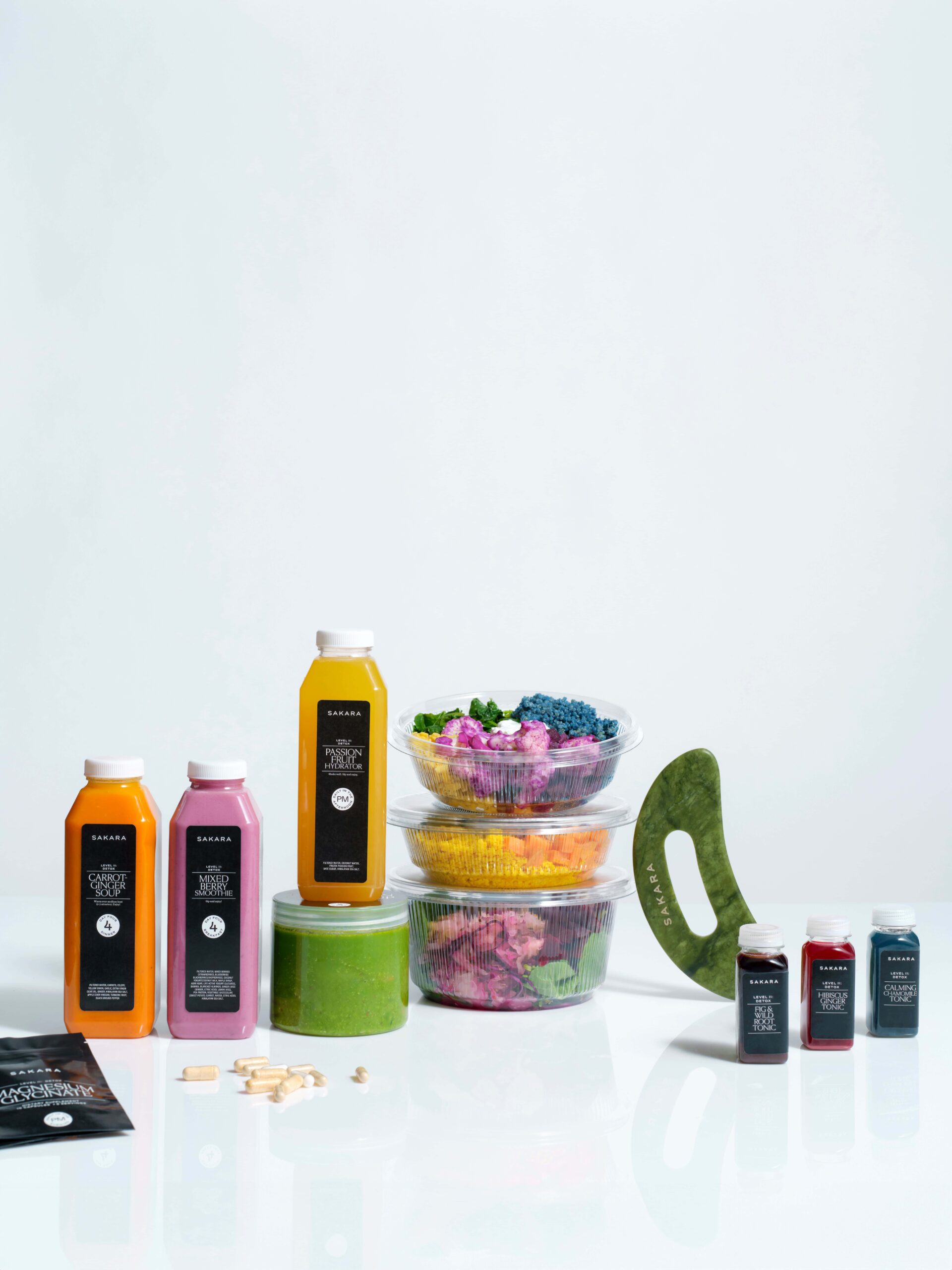
You’ve likely experienced the gut-brain connection through feelings like butterflies when nervous or “gut feelings.” Scientists have discovered a two-way communication pathway called the gut-brain axis. The gut microbiome’s trillions of microbes play a key role, influencing neurotransmitters like serotonin and dopamine that regulate mood, sleep, and cognition – 90% of serotonin is made by gut bacteria! However, the connection goes both ways. Chronic stress can disrupt the gut microbiome, increasing harmful bacteria linked to depression, anxiety, IBS, and cognitive issues. Learning about this fascinating mind-gut connection can provide tips for optimizing both gut and brain health.
Have you ever had a gut feeling about something, only to have it become true? Or felt butterflies in your stomach when you’re nervous? It turns out there’s a real physiological reason why we use those expressions. Our gut and brain are intricately connected through a two-way communication pathway known as the gut-brain axis.
What is the Gut-Brain Axis?
The gut-brain axis refers to the biochemical signaling that takes place between the gastrointestinal tract and the central nervous system. This allows the two to communicate back and forth, with influences going both ways.
A key player is our gut microbiome – the trillions of bacteria and other microbes that live in our digestive tract. In fact, our bodies contain around 100 trillion bacterial cells! These gut microbes have the majority vote, which is why it’s so important to make sure they’re the beneficial types. The gut microbes directly impact the signals being sent to the brain. In a sense, they serve as a second brain, earning the microbiome the nickname “the second brain.”
How Your Gut Affects Your Brain
One major way the gut influences the brain is by producing neurotransmitters like serotonin and dopamine. Neurotransmitters are chemical messengers that allow nerve cells to communicate, and imbalances can significantly impact how we think, feel and behave.
Believe it or not, the majority of the body’s serotonin supply is produced in the gut, not the brain! Around 90% of the “happy hormone” serotonin is made by gut bacteria. Serotonin levels influence mood, sleep, appetite, and conditions like depression, obsessive-compulsive disorder, and anger management issues.
Certain types of gut microbes can directly stimulate the production and release of serotonin in the intestinal cells. So if your gut microbiome is out of balance, serotonin levels may be thrown off as well, negatively impacting your mood and emotional state.
Dopamine is another major neurotransmitter tied to the gut. It plays an important role in attention, problem-solving, memory, and reward-based behaviours. Amazingly, half of the body’s dopamine supply is produced in the gastrointestinal tract.
When you eat something pleasurable like a piece of chocolate, dopamine is released in the brain to create feelings of enjoyment and make you want more. But that dopamine hit requires healthy gut microbes to facilitate its production from the gut.
Vitamin absorption in the gut is also crucial for maintaining proper neurotransmitter pathways and mental health. You need a balanced gut microbiome to properly absorb and produce vitamin B12, which is vital for neurological function and preventing depression, cognitive issues, and other mental health problems.
Neurotransmitters are chemical messengers that allow nerve cells to communicate, and imbalances can significantly impact how we think, feel and behave.
How Stress Impacts Your Gut
The gut-brain communication goes both ways. Just as the gut microbiome impacts the brain, the brain can also impact the gut microbiome – particularly in response to chronic stress and anxiety.
Research shows that when we’re stressed, it increases harmful bacteria in the gut while decreasing overall microbial diversity. People with depression and anxiety have been found to have a much lower diversity of gut bacteria compared to healthy individuals.
Up to 60% of irritable bowel syndrome (IBS) patients report that stress triggers or exacerbates their gastrointestinal symptoms. And for good reason – stress stimulates the release of the hormone cortisol which dramatically disrupts healthy gut function.
In the short term, cortisol diverts blood away from the gut to send more nutrients and oxygen to the muscles, preparing the body’s fight-or-flight response. But cortisol also reduces digestive enzyme production, increases stomach acid sensitivity, slows down digestion, suppresses the immune system, and can even cause painful intestinal spasms.
This cascade of cortisol’s effects on the gut makes perfect sense as a temporary stress response for our ancestors who needed to physically fight or run from threats. However, in our modern world where we experience frequent, prolonged psychological and emotional stress, cortisol’s impact takes a major toll on gut health and microbiome balance.
It creates the perfect conditions for unhealthy gut bacteria to thrive while starving out the beneficial species that produce neurotransmitters like serotonin. This can exacerbate mental health issues like anxiety and depression through the gut-brain axis.
Tap here to get the Eat Real Food Program

Tips for Reducing Stress & Supporting Gut Health
Considering this intimate gut-brain connection, it’s clear that taking steps to manage stress and nurture our gut microbiome is crucial for mental as well as physical wellness. Here are some key strategies:
-
Practice stress management techniques
Make relaxation practices part of your routine like deep breathing, journaling, yoga, meditation, spending time in nature, exercising regularly, maintaining social connections, and cultivating a sense of life purpose. All of these are proven to help reduce psychological stress.
-
Avoid gut-damaging foods
It’s important to limit foods that can destroy beneficial gut bacteria and promote inflammation, including added sugars, artificial sweeteners, highly processed foods, red meat, and alcohol. These feed unhealthy gut microbes while starving out the “good” species we want to thrive.
-
Eat plenty of whole, fibre-rich foods
Fibre from plant-based foods like fruits, vegetables, legumes, nuts, and seeds acts as a prebiotic – meaning it nourishes and feeds the healthy bacteria already living in your gut. As the fibre is fermented, it produces anti-inflammatory short-chain fatty acids that support gut barrier function and a balanced microbiome.
DOWNLOAD YOUR EAT REAL FOOD PROGRAM
-
Focus on probiotic-rich foods and supplements
To help boost populations of beneficial microbes, consume probiotic foods like yoghurt, kefir, sauerkraut, kimchi, miso, kombucha, and certain cheeses. You can also consider taking a high-quality probiotic supplement, but be sure to combine it with prebiotics (fibre) for best results. Studies show probiotic therapy can yield small but significant effects for depression and anxiety. In one study, healthy volunteers who took probiotics for The use of probiotics as a treatment for depression has a scientific basis related to the mechanisms of the microbiota-gut-brain axis, which play a role in the development of depression. Probiotics could potentially be used as an additional therapy for major depressive disorder or as a stand-alone treatment for mild depression. Note that the most widely studied and commercialized probiotic strains are Lactobacillus and Bifidobacterium.
Note also that wellness, regardless of your symptoms and concerns, is a multi-faceted concept- we cannot heal isolated symptoms, with isolated “magic solutions”, nor can we heal in isolation.
Click the link below to join the engaged, lively, helpful community of like-minded people like you!
sign up now!
We cannot heal isolated symptoms, with isolated “magic solutions”, nor can we heal in isolation.
Sign up now to get the accountability, ease, and the peace of mind that you deserve.
Editor’s note: The information in this article is not a substitute for professional medical advice, diagnosis, or treatment.







Comments +